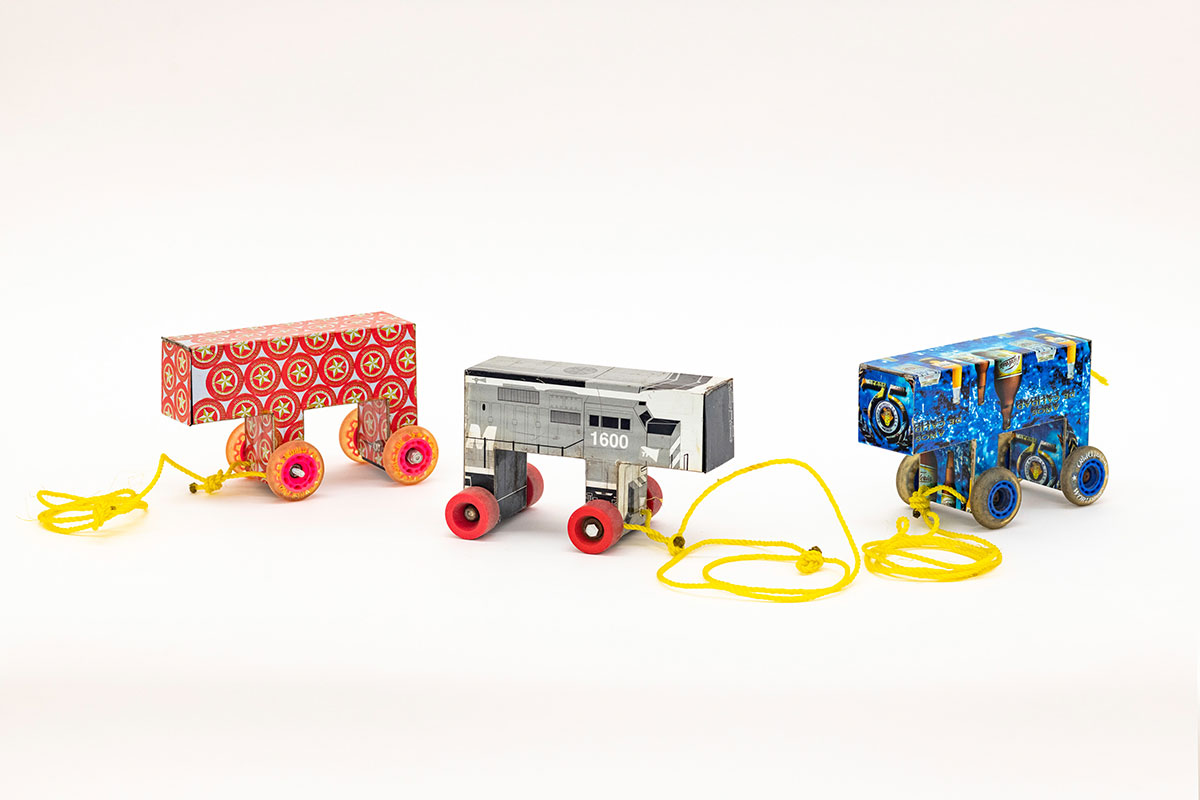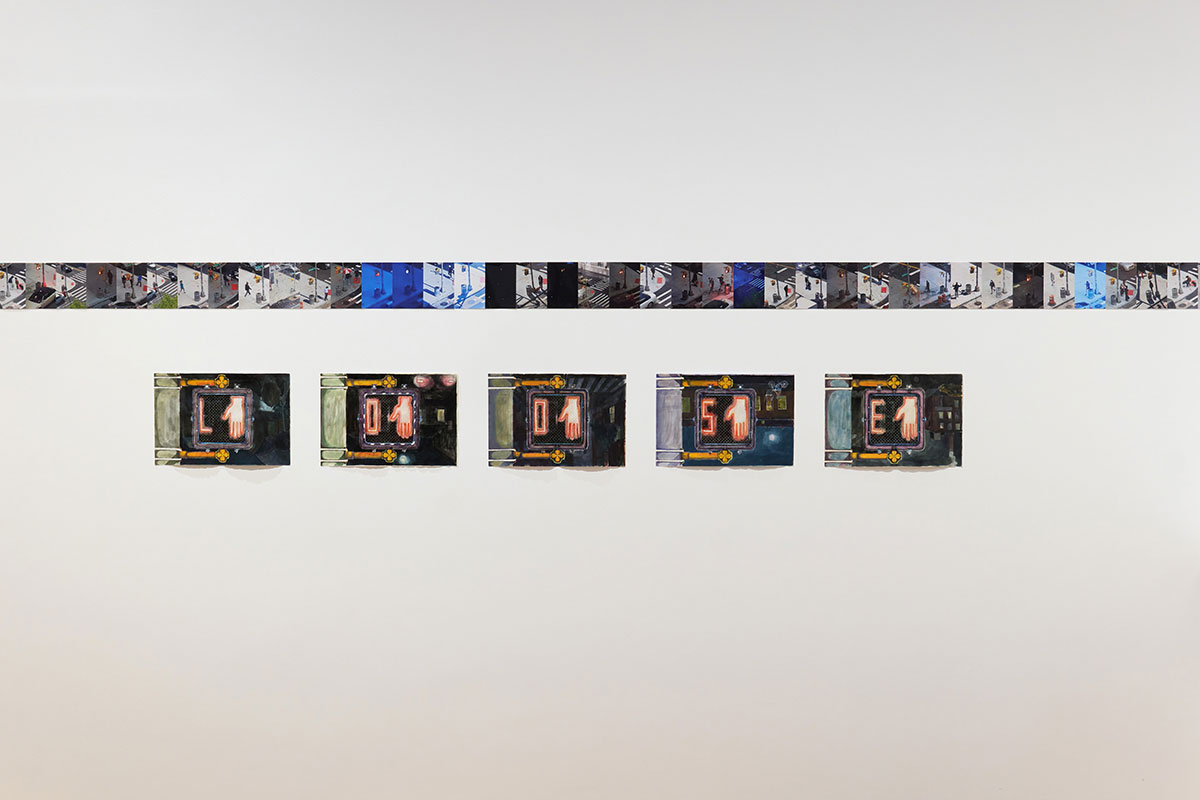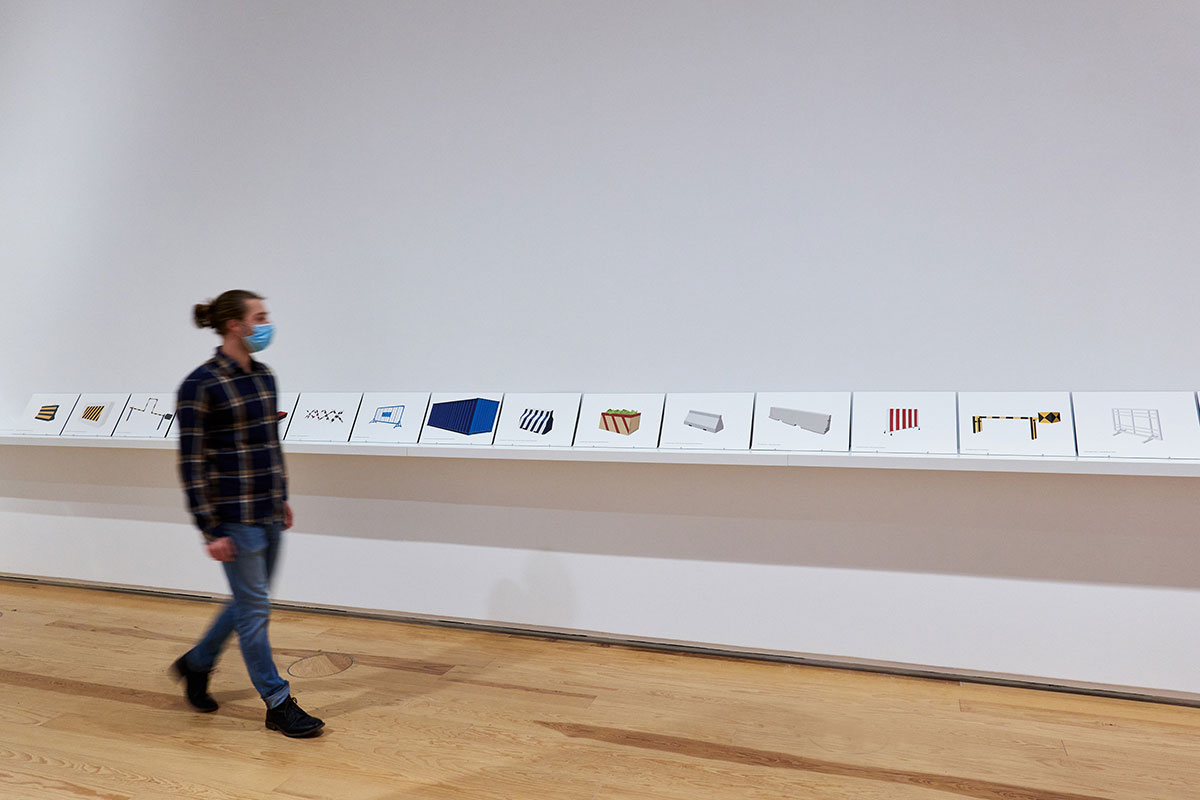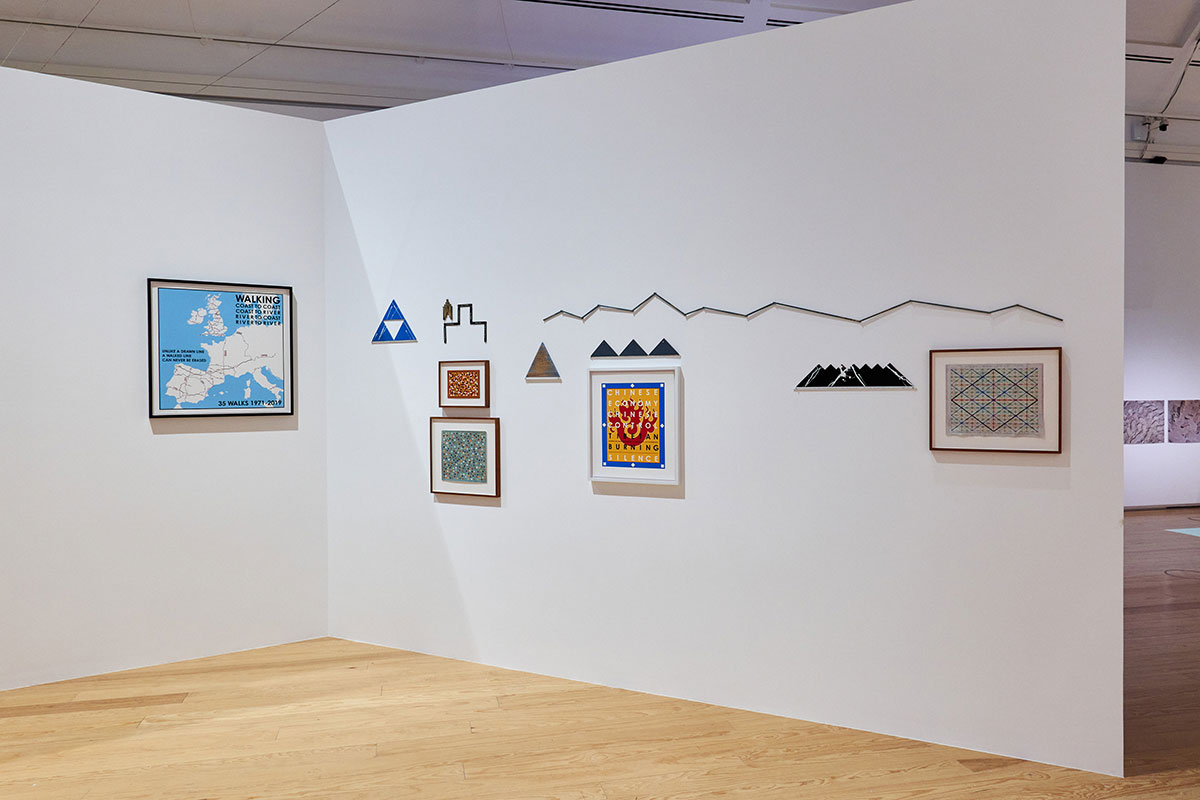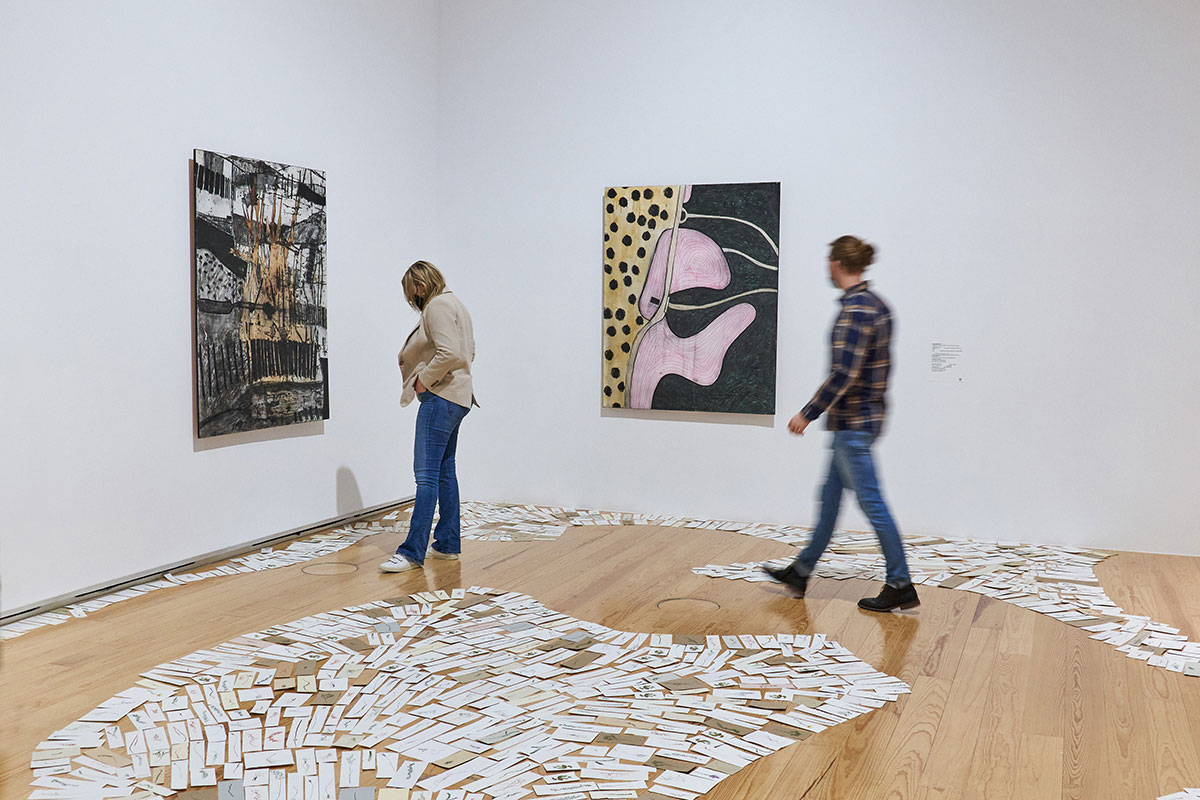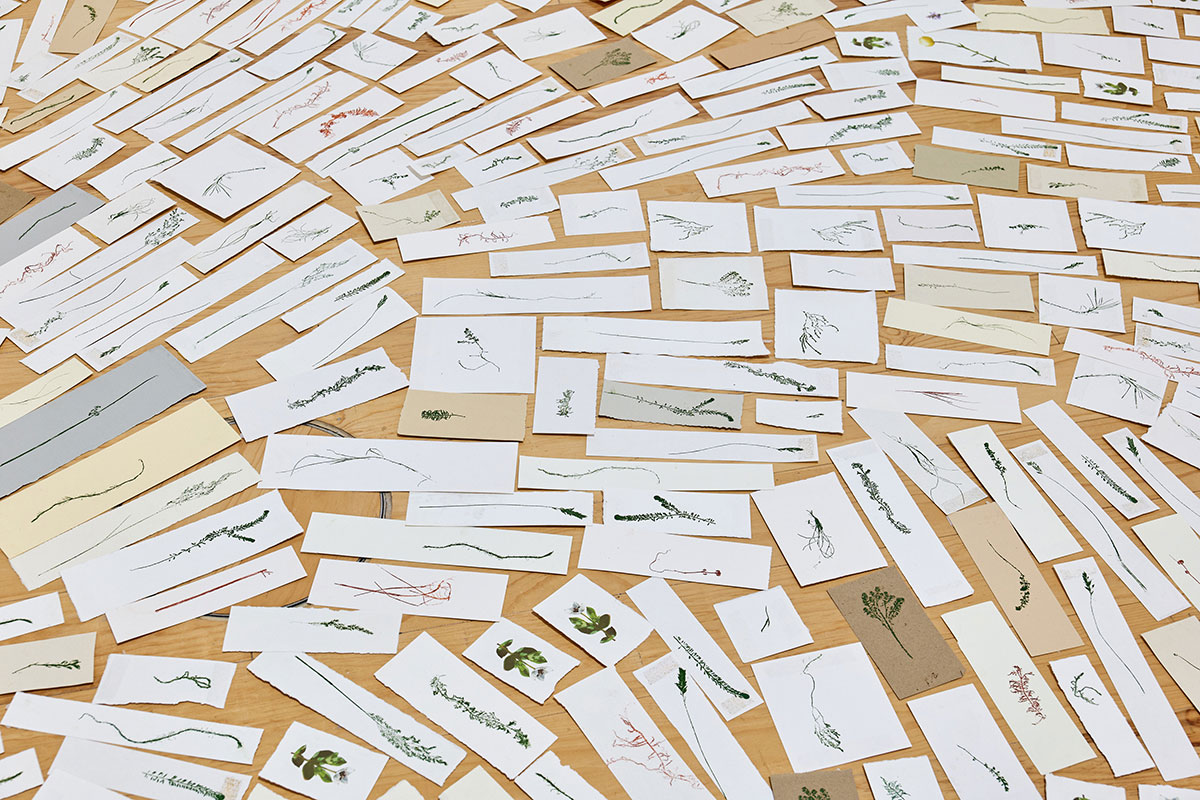PRESENTATION: Walk, Part II
 The act of walking has gained new significance as a social phenomenon in the twenty-first century. At the core of activities such as strolling or hiking are sensory experiences that enable a connection with nature and the environment as well as a new experience of the self. At the same time, they are related to social issues of global ecological, geopolitical, and economic change. As an artistic practice, walking promotes the idea of a space that is structurally connected to movement, encompassing mental and virtual spaces in addition to urban and rural environments. (Part II).
The act of walking has gained new significance as a social phenomenon in the twenty-first century. At the core of activities such as strolling or hiking are sensory experiences that enable a connection with nature and the environment as well as a new experience of the self. At the same time, they are related to social issues of global ecological, geopolitical, and economic change. As an artistic practice, walking promotes the idea of a space that is structurally connected to movement, encompassing mental and virtual spaces in addition to urban and rural environments. (Part II).
By Efi Michalarou
Photo: Schirn Kunsthalle Archive
With photographs, video works, performances, collages, drawings, paintings, and sculptures, the exhibition “WALK!” presents an overview of the spectrum of contemporary artistic positions that aesthetically intertwine the act of moving on foot with the challenges of our time. The exhibition brings together around one hundred works by more than forty international artists, whose work essentially focuses on the various aspects of walking: wandering around without a destination. In his videos “Pasajes I–V “(2012–18), Sebastián Díaz Morales visualizes how spaces become psychogeographically condensed and rambling walks allow for the opening up of alternative perspectives. The artist assembles images of cities and recreates them in the form of imagined geographies. His videos follow his protagonists as they walk through these magical-realist worlds. Rahima Gambo, whose documentary works highlight themes of postcolonialism, identity, and politics in Nigeria, undertakes a psychogeographic exploration of the cities of Lagos, Maiduguri, and Abuja in “A Walk” (2018–). The videos and collages are reflections of the artist’s inner cartography and incorporate sites that have been attacked by the Islamist terrorist group Boko Haram. Francis Alÿs uses performative actions on his walks to weave new narratives into urban structures, which in turn become part of the city’s multiple histories. The video “The Collector (Mexico City)” (1991–2006) documents a multi-day performance in which the artist dragged a small magnetic toy dog on wheels through the streets of Mexico City’s Centro Histórico, collecting metallic objects along the way. Walking in public spaces comprises the observation of the surroundings and the act of walking itself. With their work “Male Subject & Female Subject” (2011), Özlem Günyol & Mustafa Kunt reflect on the interplay of external and internal methods of control by arranging for a private detective to shadow them in New York for a day. As they did not know the exact time of the detective’s observation, their everyday life became overshadowed by a sense of suspicion. Self-observation and observation by others likewise merge in the works of Miae Son. The video work “the still walker #2, Moonwalk” (2015) shows the artist practicing the moonwalk, a dance step made famous by Michael Jackson. She came up with the idea of walking forward while standing still by using escalators. After using YouTube tutorials to learn the dance she created the work Instructions for “Moonwalk (Beginners)” (2016), which combines drawn instructions with a music box mechanism. Besides paved paths and signs, the means by which walking is controlled also includes barriers that prevent crossing from public to nonpublic spaces. Pakistani artist Bani Abidi takes a satirical look at these in her series “Security Barriers A–Z” (2009-19). The prints, which depict objects based on models found in her hometown Karachi, resemble a specialist catalog of street furniture for the protection and security of buildings and squares.
Prohibitions or refusals can lead to Not Walking, revealing how walking is structured by social norms and highlighting the gender, origin, or physical characteristics of the person walking. Kubra Khademi has lived in Paris since 2015; she focuses on the living conditions of women in Afghanistan. For her performance “Armor” (2015), captured on film, she walks through a busy area in the center of Kabul wearing custom-made metal armor, drawing attention to the sexual and verbal harassment of women in public spaces. The video installation “Great White Way” (2001-06) by Pope.L emphasizes deviance and normality in walking. The artist, whose performances have interrogated racism and inequality in the United States since the 1970s, crawls through Manhattan’s bustling streets in adverse weather conditions while wearing a Superman costume—an action that is either ignored, stared at, or mocked. Notions of care and compassion are explored in Jesse Darling’s sculptures “Crawling Cane and Collapsed Cane” (2017), whose forms recall walking aids and the vulnerability of the human body. Simultaneously active and fatigued, the objects struggle with distinct resistance against their own suffering, which can be clearly perceived in the space. Walking, as evinced by Minouk Lim’s project “Portable Keeper” (2009–), can also be a tool to narrate historical events and keep their memory alive. In performances that explore the impact of the Korean War, the artist employs two-meter-long sculptures. These “Portable Keeper”s move with the performer through urban areas and become bearers of memory, recording the history and numerous changes of the places. Milica Tomić connects various sites of successful anti-fascist resistance during World War II in Belgrade with her action “One Day Instead Of Night, The Machinegun Will Burst If The Light Can Not Come Otherwise” (2009). In the video work, she revisits these sites by walking through them, lending them a voice by narrating their stories. The project “Los Angeles River Crossings” (2005) by Hans Schabus commemorates the river of the same name, which was canalized in 1938 after a disastrous flood. The artist walked the approximately eighty kilometers of the river, documented more than one hundred bridges, and created a map of the water’s path in which Los Angeles appears as a blank space. For some artists, walking holds a transformative potential and serves as the subject of artistic reflection. The founder of Walking Art, Hamish Fulton sees artistic walking as an ephemeral work of art in its own right. Fulton’s artistic walks differ from everyday movement by a set of strict self-imposed rules. For almost fifty years, these walks have formed the basis of his “Walk Works,” which comprise a wide variety of media as well as respective texts detailing his walks. On view are a series of works that highlight his socio-critical and environmental commitment. Hamish Fulton challenges and replaces national boundary demarcations with the lines of his walks through “Europe in 35 Walks Map. Europe. 1971–2019” (1971–2019); in the drawing “343 Barefoot Paces, Wyoming 2017” (2017), he focuses on the practice of counting steps as a means of slowing down thought.
Participating Artists: Bani Abidi, Yuji Agematsu, Allora & Calzadilla, Francis Alÿs, Daniel Beerstecher, Ellie Berry, James Bridle, Tiffany Chung, Jesse Darling, Michael Dean, Sebastián Díaz Morales, Anders Dickson, Flaneur, Hamish Fulton, Regina José Galindo, Rahima Gambo, Birke Gorm, Özlem Günyol & Mustafa Kunt, Hamza Halloubi, David Hammons, Yolande Harris, Mona Hatoum, Fabian Herkenhoener, Hiwa K, Michael Höpfner, Jan Hostettler, Kubra Khademi, Bouchra Khalili, Kimsooja, Minouk Lim, Carole McCourt, Helen Mirra, Sohei Nishino, Carmen Papalia, Signe Pierce & Alli Coates, Sascha Pohle, Pope.L, Hans Schabus, Miae Son, Cheyney Thompson, Milica Tomić.
Photo: Bani Abidi, Security Barrier Type G – Traffic Police, Karachi, from the Series: Security Barriers A–Z, 2009–19, Digital prints, Series of 26 works, each 29,7 × 42 cm, mounted, Courtesy of the artist and Experimenter, Kolkata
Info: Curators: Dr. Fiona Hesse and Matthias Ulrich, Schirn Kunsthalle Frankfurt,, Römerberg, Frankfurt, Germany, Duration: 18/2-22/5/2022, Days & Hours: Tue & Fri-sun 10:00-19:00, Wed-Thu 10:00-22:00, www.schirn.de
